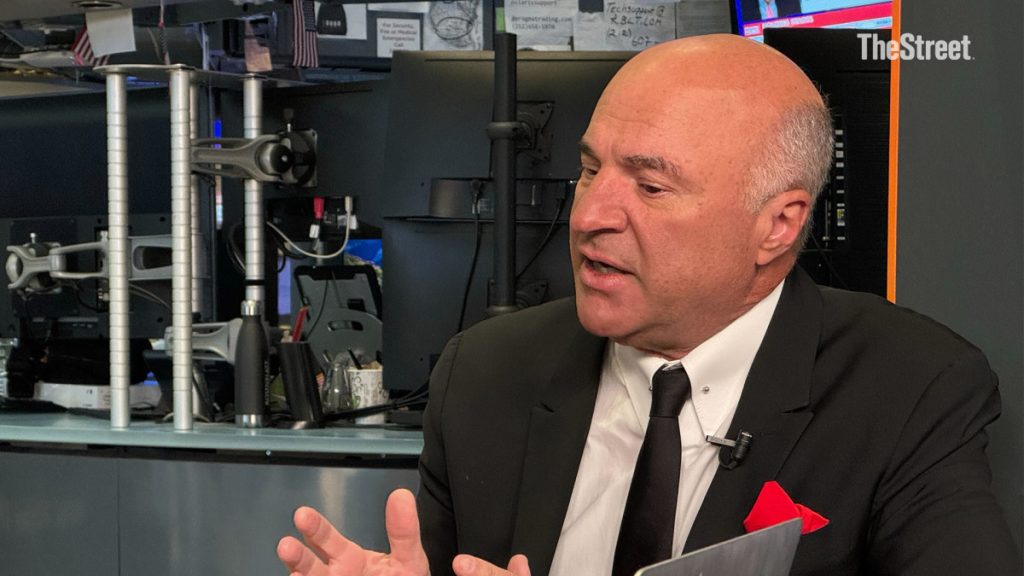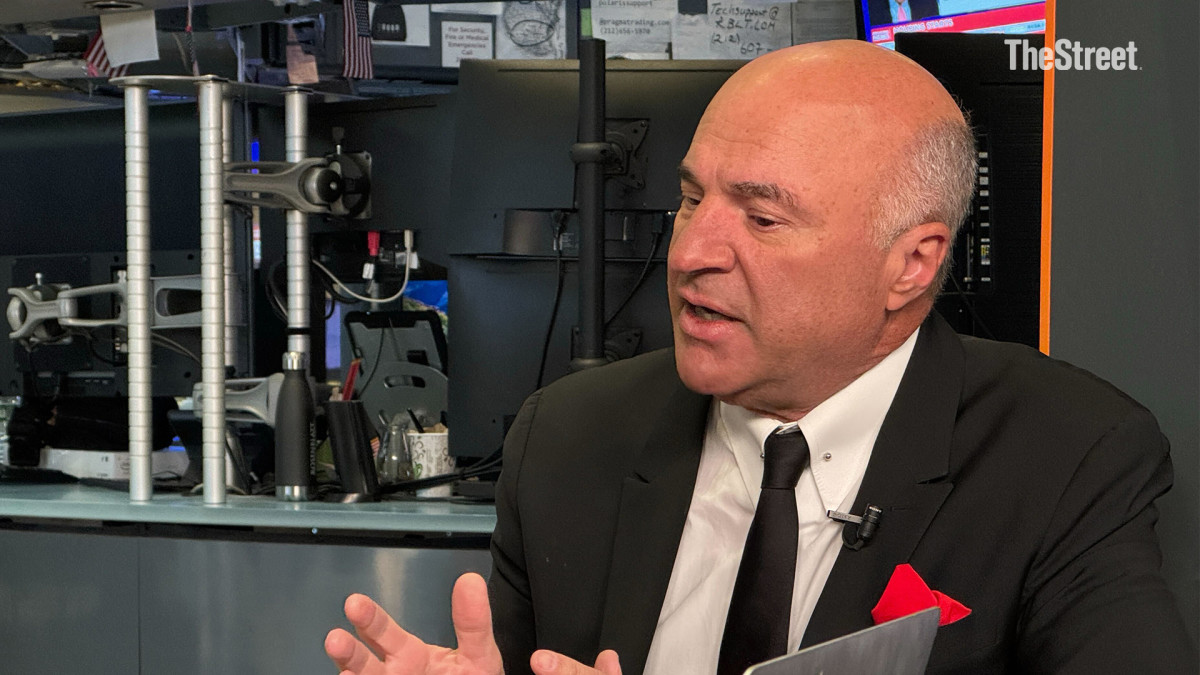Shark Tank's Kevin O'Leary sends strong message on Social Security, 401(k)s

With uncertainty surrounding the stock market and the potential for an economic downturn, many American workers are prioritizing their daily financial responsibilities — covering housing costs, keeping up with rising prices on essentials such as groceries and fuel, and managing other monetary commitments.
While these pressing expenses demand attention, people also acknowledge the value of preparing for the future.
By gaining a clear understanding of Social Security benefits and making contributions to retirement accounts such as 401(k) plans and IRAs (Individual Retirement Accounts), individuals can work toward financial security in retirement and build resilience against economic challenges.
Kevin O’Leary, a prominent entrepreneur and investor recognized for his role on ABC’s “Shark Tank,” shares valuable insights on Social Security and presents a strategy aimed at helping workers cut expenses and direct more money toward their 401(k) and IRA savings.
💵💰Don’t miss the move: Subscribe to TheStreet’s free daily newsletter💰💵
Across the U.S., workers widely recognize 401(k) plans and IRAs as essential tools for long-term financial security — but finding extra money to invest in them can be a challenge.
Despite this, participating in an employer-sponsored 401(k) plan remains a dependable way to build retirement savings, especially when employers offer matching contributions.
With automatic payroll deductions, this method enables workers to invest in their future consistently and effortlessly, making it both practical and efficient.
Related: Shark Tank’s Kevin O’Leary makes bold prediction on U.S. economy
IRAs offer a broader selection of investment options not always available in 401(k) plans. However, managing an IRA demands more personal involvement, as individuals must set up the account and arrange automatic contributions independently.
Considering these facts, O’Leary shares additional perspectives on Social Security benefits, 401(k) plans, and strategies for saving money.

Image source: TheStreet
Kevin O’Leary of ‘Shark Tank’ warns Americans on Social Security benefits
O’Leary points out that the average annual income retirees receive from Social Security is quite low, amounting to a poverty-level retirement. He stresses the importance of being financially savvy and strategic when planning for the future.
For those who have postponed retirement planning longer than they should have, he explains that it’s still possible to make adjustments and increase retirement income, reducing reliance on Social Security benefits.
More on retirement:
- Dave Ramsey sends strong message to Americans on 401(k)s
- Shark Tank’s Kevin O’Leary warns Americans on Social Security
- Scott Galloway sounds the alarm on Social Security, boomers
“I’m not going to tell you the next decades are going to be easy,” O’Leary wrote in his book, Cold Hard Truth for Men, Women & Money. “It’s time to throw out all those expectations you had about how life was going to be in your twilight years. It’s time to start planning for something completely different.”
O’Leary emphasizes that individuals who are five to seven years away from retirement still have opportunities to boost their income. He points out that even an additional $5,000 per year can significantly improve one’s quality of life.
Over the course of fifteen years post-retirement, this amounts to a total savings goal of $75,000, which he believes can be realistically achieved within that five-to-seven-year timeframe.
Related: Dave Ramsey sounds alarm for Americans on Social Security
Kevin O’Leary discusses adding value to 401(k) plans
O’Leary stresses that improving financial habits to increase contributions to retirement accounts such as 401(k)s starts with a thorough and honest evaluation of one’s income and expenses.
Before reallocating money toward savings and investments, eliminating unnecessary spending is essential. This requires taking control of financial outflows and being intentional about where funds are directed.
To get a clear picture of spending and saving habits, O’Leary suggests calculating total earnings over a three-month period, a number he refers to as the 90-Day Number. This figure includes all incoming funds, such as direct deposits, side income, and any additional cash flow.
Once income is recorded, the next step is documenting all expenses. This encompasses both small purchases such as coffee and snacks, and larger financial obligations, such as debt payments, utility bills, and housing costs.
Finally, O’Leary advises subtracting total expenses from total earnings to determine whether the resulting number is positive or negative.
A positive number indicates financial stability, allowing for increased contributions to a 401(k). A negative number, however, signals the need for adjustments.
The extent of necessary changes depends on how significantly spending exceeds earnings, O’Leary explains.
A deeply negative 90-Day Number reveals a pattern of living beyond one’s means, making it crucial to recognize this reality and take proactive steps to correct financial imbalances.
Related: Veteran fund manager unveils eye-popping S&P 500 forecast
#Shark #Tank039s #Kevin #O039Leary #sends #strong #message #Social #Security #401ks




